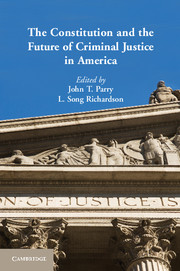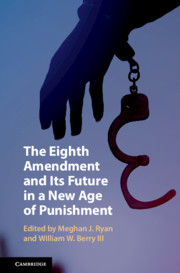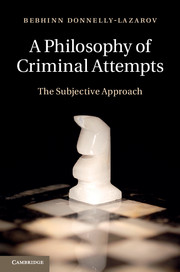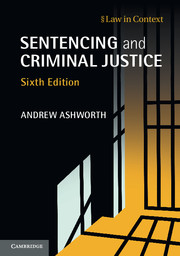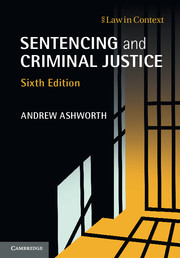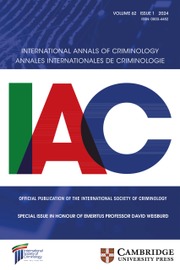The Constitution and the Future of Criminal Justice in America
The Constitution and the Future of Criminal Justice in America brings together leading scholars from law, psychology and criminology to address timely and important topics in US criminal justice. The book tackles cutting-edge issues related to terrorism, immigration and transnational crime, and to the increasingly important connections between criminal law and the fields of social science and neuroscience. It also provides critical new perspectives on intractable problems such as the right to counsel, race and policing, and the proper balance between security and privacy. By putting legal theory and doctrine into a concrete and accessible context, the book will advance public policy and scholarly debates alike. This collection of essays is appropriate for anyone interested in understanding the current state of criminal justice and its future challenges.
- Presents accessible discussions of cutting edge issues in criminal law
- Provides a range of interdisciplinary perspectives on criminal justice
- Includes coverage of international crimes, terrorism and immigration as well as more traditional criminal justice topics
Reviews & endorsements
"… essential reading for persons who want to increase their understanding of contemporary constitutional criminal procedure law … understanding these doctrines and the trends in the law, are crucial to gaining a full understanding of how law impacts the criminal justice system - in policy, procedure, and practice."
Craig Hemmens, Criminal Law and Criminal Justice Books (clcjbooks.rutgers.edu)
Product details
August 2013Paperback
9781107605220
348 pages
229 × 152 × 18 mm
0.48kg
Available
Table of Contents
- Part I. Foundations – The Scope of Criminal Law and Access to Counsel:
- 1. The past and future of the right to an attorney for poor people accused of crimes Stephen B. Bright
- 2. Criminal justice in America: constitutionalization without foundation Markus D. Dubber
- Part II. Race and Criminal Procedure:
- 3. The challenges of 'quality of life' policing for the Fourth Amendment Susan A. Bandes
- 4. Arrest efficiency and the Fourth Amendment L. Song Richardson
- Part III. Policing and Privacy:
- 5. The exclusionary rule: its effect on innocence and guilt Tonja Jacobi
- 6. Consent, dignity, and the failure of scattershot policing Janice Nadler
- 7. Neurotechnologies at the intersection of criminal procedure and constitutional law Amanda Pustilnik
- Part IV. Technology and the Surveillance Society:
- 8. Information and social control Wayne A. Logan
- 9. Is the fourth amendment relevant in a technological age? Christopher Slobogin
- Part V. Confessions and Miranda:
- 10. False confessions and the constitution: problems, possibilities, and solutions Richard A. Leo
- 11. The foggy future of Miranda Emily Hughes
- Part VI. Conviction, Sentencing, and Incarceration:
- 12. Collateral consequences of criminal conviction Gabriel J. Chin
- 13. Psychopathy, criminal responsibility, punishment, and the Eighth Amendment Adam R. Fox and Reid Griffith Fontaine
- Part VII. Emergencies and Borders – Immigration, Terrorism, National Security and Transnational Crime:
- 14. Preemption and proportionality in state and local crimmigration law Juliet P. Stumpf
- 15. Embattled paradigms: the 'war on terror' and the criminal justice system Susan N. Herman
- 16. The civilianization of military jurisdiction Stephen I. Vladeck
- 17. Crime across borders: globalization, executive power, and the transformation of criminal justice John T. Parry.

